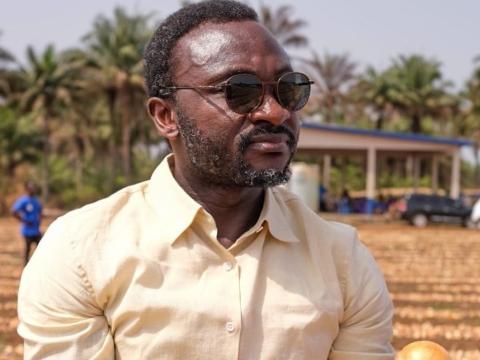By Sorie Ibrahim Fofanah
Speaking about challenges faced by local poultry farmers in respect to competition from egg and chicken importers in Sierra Leone, the Minister of Agriculture and Food Security, Henry Musa Kpaka has committed to support local farmers through policy actions.
Kpaka was responding to questions from journalists during the government’s weekly press conference hosted at the Ministry of Foreign Affairs in Freetown on 11th June 2024 in relation to the influx of imported eggs in the country’s market that have been reported to be mostly rotten. This, according to him, adversely affects local poultry farmers.
“I have seen the news about rotten eggs and I have also talked with so many local egg producers, during which they have expressed concerns over the issue. I have sent staff all over the country to collect data on how many poultry farmers are in the country, and what has been the trend of their egg and chicken production over the past three years,” he disclosed.
He added that a policy action would be taken at the end of their data collection, which he said would support local farmers in their egg and chicken production. He encouraged the public to buy locally- produced eggs and chickens.
The minister however said consumers prefer imported eggs to the locally produced ones due to what he believed to be “small” difference in terms of price. “If you do that, the local farmers would not be able to do business, and as a result they will be forced to quit the business,” he said, adding that the country will never be able to feed itself. “If you are not a farmer, buy our local produce. If you buy Sierra Leone’s produce, we will feed Sierra Leone,” Kpaka emphasised.
He described how choosing to buy Sierra Leone’s products are a “conscious choice,” that citizens need to make. This he said would help local farmers and that many people would be tempted to invest in egg production and as a result dissuade high importation of eggs.
Speaking about the status of their government’s flagship programme, Feed Salone Kpaka said it’s making progress, describing it as “decisive,” adding that the private sector has been investing in the agriculture sector.
He said the strategy towards their flagship agenda guides them on how they should operate and that they have convinced the private sector to invest more in agriculture.
He explained how 10 million dollars has been provided as loan to farmers boasting of over 1 million dollars capital investment, for a 10% interest rate. This he said is low compared to loans from other financial institutions that go for 30% interest. “We want to give farmers funds so they can grow what they want to,” he said.
Copyright © 2024 Politico (14/06/24)








